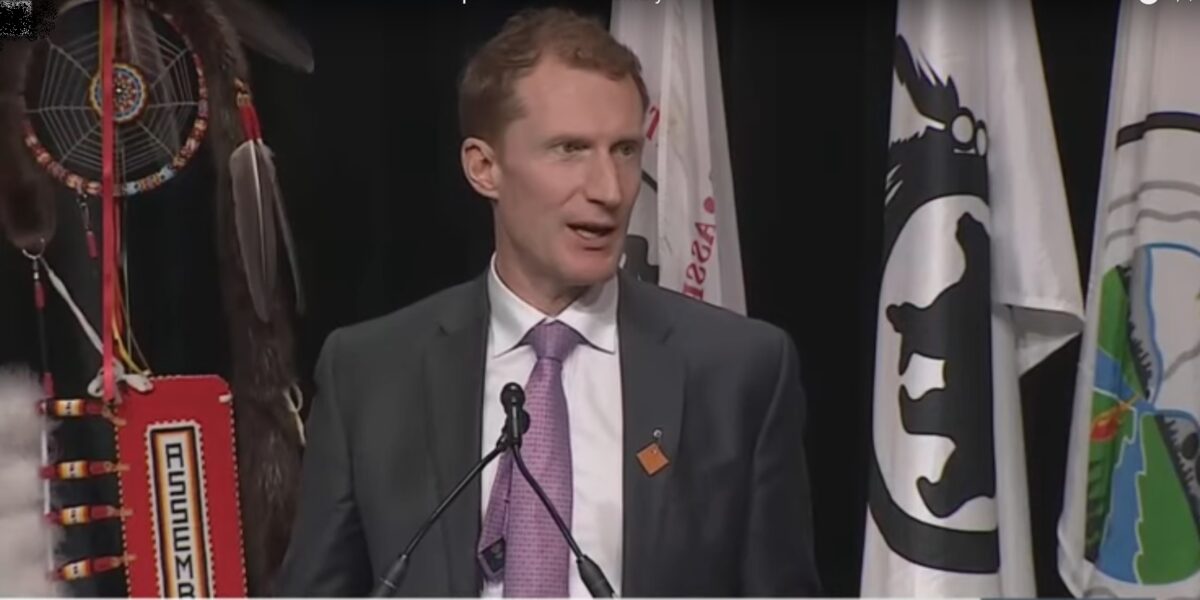The Congress of Aboriginal Peoples (CAP) is taking the federal government to court in an effort to end the discriminatory exclusion of Indigenous people in Canada without status from accessing post-secondary education benefits.
The landmark lawsuit was filed on July 7 against the Minister of Indigenous Services and the Attorney General of Canada.
It argues the federal government has discriminated against Indigenous people while also violating Section 15 of the Canadian Charter of Rights and Freedoms “by effectively impeding access to post-secondary education.”
“This is part of an ongoing discrimination and colonialism, and we are left with no choice but to ask the federal courts for relief,” Elmer St. Pierre, national chief of the CAP, said in a statement Friday.
In addition to removing restrictions for post-secondary benefits to Indigenous people in Canada without status, the lawsuit also calls for the creation of a new accountability mechanism for the federal government. The mechanism would bind federal ministers to meet their obligations under the United Nations Declaration on the Rights of Indigenous Peoples Act (UNDRIP).
“This lawsuit demands that the current federal government respects the Constitution, the Charter of Rights and our UN obligations in access to post-secondary education,” St. Pierre added.
The CAP’s history of litigation against the federal government
The CAP represents Métis, status and non-status Indians, and Southern Inuit Indigenous People living off-reserve. According to the organization, over 70 per cent of Indigenous people now live off-reserve.
The latest court filing seeks to build on the Supreme Court of Canada’s 2016 CAP–Daniels decision that concluded non-status Indians are “far more exposed to discrimination and other social disabilities… they are the most disadvantaged of all Canadian citizens.”
The SCC also ruled that the federal government is responsible for serving all Indigenous people in Canada, whether they have status or not. However, that ruling did not prevent the government from continuing to prohibit Metis and First Nations communities from accessing supports and services available to those with legal status.
In September 2021, the CAP filed another challenge against the federal government — this time with the United Nations Human Rights Committee. The legal complaint argued Canada’s discrimination of non-status Indigenous peoples is based on a false and harmful notion that off-reserve Indigenous peoples are somehow “less Indigenous than their reserve-based counterparts.”
Noting that many Indigenous people referred to as “non-status Indians” either lost their status or never had status under the Indian Act, the CAP explains they also lack a connection to reserve-based First Nations communities and their governments.
The CAP says less than half of the 1.6 million Indigenous people in Canada have status under the Indian Act, leaving the majority of Indigenous people to suffer from Canada’s “colonial and assimilationist policies and discriminatory laws.” Inuit and Metis communities do not have status despite being Indigenous to Canada.
Indigenous post-secondary institutions remain severely underfunded
Post-secondary education is a treaty right recognized since the Royal Proclamation of 1763. It was also a constitutional right in the Canadian Constitution Act of 1982.
While Indigenous Services Canada (ISC) is responsible for providing funding to Indigenous students, the ISC continues to stipulate that funding is limited and aid will not be provided to all students.
Meanwhile, Metis students are ineligible for the Post-Secondary Student Support Program (PSSSP) and the University and College Entrance Preparation Program (UCEPP). Instead, Metis students are required to apply through a separate stream of funding, leaving them with fewer options for financial aid.
The CFS also highlighted the disparity in post-secondary benefits by comparing non-Indigenous schools with Indigenous institutions, finding less than half of Indigenous institutes have cafeterias. Just 15 per cent offer off-campus housing assistance.
According to the Canadian Federation of Students – Ontario (CFS), there were about 32,000 Indigenous students studying in post-secondary institutions across Canada in 2021.
Discriminatory exclusion hurts the whole community
The inability for Indigenous people in Canada to access post-secondary benefits is intrinsically connected to the country’s legacy of colonization and white supremacy.
A 2020 study by researcher Maggie Jones found that cutbacks to Indigenous post-secondary supports resulted in a decline in program completion.
Jones also discovered a link between that inadequate funding and a drop in high school graduation rates among Indigenous students.
With high school offering a pathway to post-secondary institutions, Jones argued the failure to provide post-secondary benefits removes the incentive to finish high school in the first place.
A 2007 report published by the federal government’s Standing Committee on Aboriginal Affairs and Northern Development noted that until the 1940s, Indigenous people were forced to surrender their status in order to even enroll in post-secondary institutions.
In the report, Keith Frame of the Prince Albert _rand Council pointed out that post-secondary opportunities lost to students harm the entire community.
“A student with a treaty number in Black Lake who gets a dental assistant diploma benefits everybody, not just the community of Black Lake,” Frame said. “It’s the opportunity that’s being lost for all of us.”



